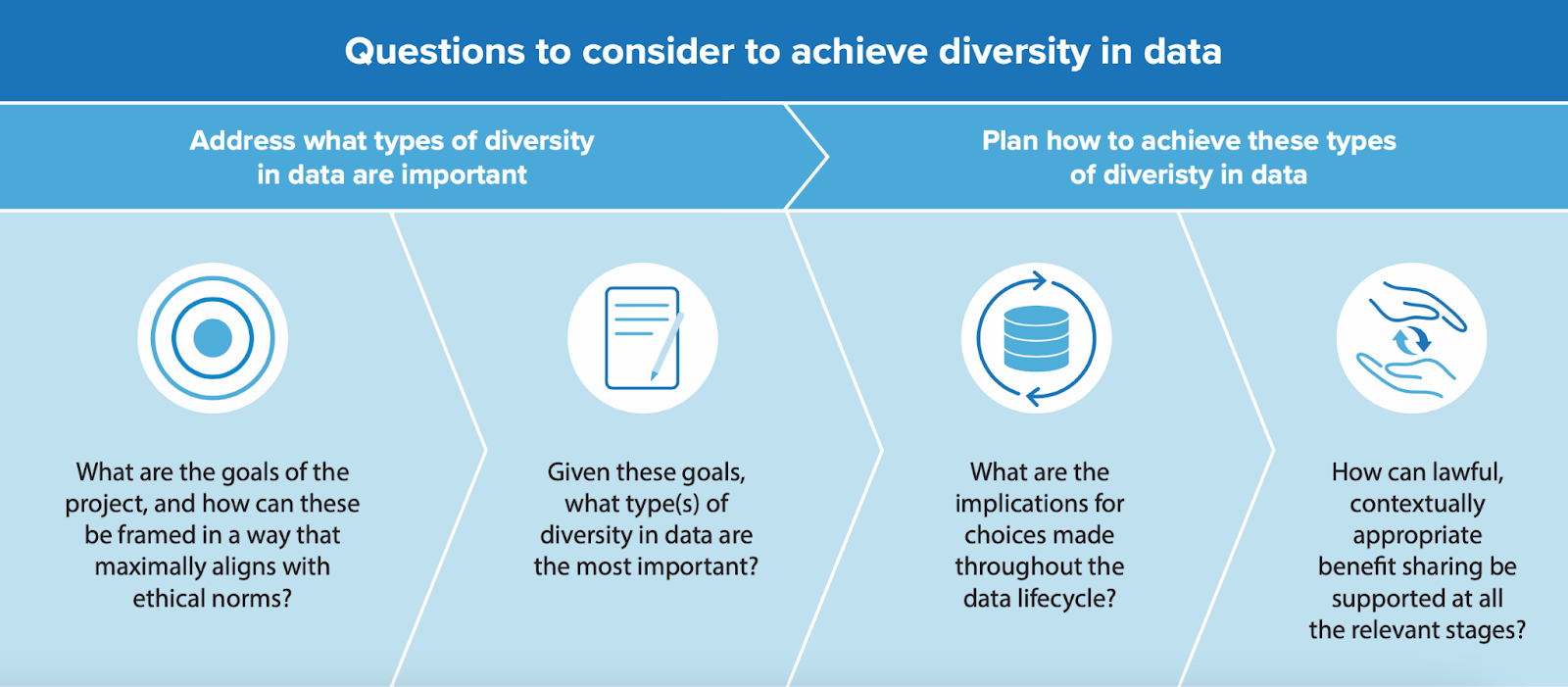About us
Learn how GA4GH helps expand responsible genomic data use to benefit human health.
Learn how GA4GH helps expand responsible genomic data use to benefit human health.
Our Strategic Road Map defines strategies, standards, and policy frameworks to support responsible global use of genomic and related health data.
Discover how a meeting of 50 leaders in genomics and medicine led to an alliance uniting more than 5,000 individuals and organisations to benefit human health.
GA4GH Inc. is a not-for-profit organisation that supports the global GA4GH community.
The GA4GH Council, consisting of the Executive Committee, Strategic Leadership Committee, and Product Steering Committee, guides our collaborative, globe-spanning alliance.
The Funders Forum brings together organisations that offer both financial support and strategic guidance.
The EDI Advisory Group responds to issues raised in the GA4GH community, finding equitable, inclusive ways to build products that benefit diverse groups.
Distributed across a number of Host Institutions, our staff team supports the mission and operations of GA4GH.
Curious who we are? Meet the people and organisations across six continents who make up GA4GH.
More than 500 organisations connected to genomics — in healthcare, research, patient advocacy, industry, and beyond — have signed onto the mission and vision of GA4GH as Organisational Members.
These core Organisational Members are genomic data initiatives that have committed resources to guide GA4GH work and pilot our products.
This subset of Organisational Members whose networks or infrastructure align with GA4GH priorities has made a long-term commitment to engaging with our community.
Local and national organisations assign experts to spend at least 30% of their time building GA4GH products.
Anyone working in genomics and related fields is invited to participate in our inclusive community by creating and using new products.
Wondering what GA4GH does? Learn how we find and overcome challenges to expanding responsible genomic data use for the benefit of human health.
Study Groups define needs. Participants survey the landscape of the genomics and health community and determine whether GA4GH can help.
Work Streams create products. Community members join together to develop technical standards, policy frameworks, and policy tools that overcome hurdles to international genomic data use.
GIF solves problems. Organisations in the forum pilot GA4GH products in real-world situations. Along the way, they troubleshoot products, suggest updates, and flag additional needs.
GIF Projects are community-led initiatives that put GA4GH products into practice in real-world scenarios.
The GIF AMA programme produces events and resources to address implementation questions and challenges.
NIF finds challenges and opportunities in genomics at a global scale. National programmes meet to share best practices, avoid incompatabilities, and help translate genomics into benefits for human health.
Communities of Interest find challenges and opportunities in areas such as rare disease, cancer, and infectious disease. Participants pinpoint real-world problems that would benefit from broad data use.
The Technical Alignment Subcommittee (TASC) supports harmonisation, interoperability, and technical alignment across GA4GH products.
Find out what’s happening with up to the minute meeting schedules for the GA4GH community.
See all our products — always free and open-source. Do you work on cloud genomics, data discovery, user access, data security or regulatory policy and ethics? Need to represent genomic, phenotypic, or clinical data? We’ve got a solution for you.
All GA4GH standards, frameworks, and tools follow the Product Development and Approval Process before being officially adopted.
Learn how other organisations have implemented GA4GH products to solve real-world problems.
Help us transform the future of genomic data use! See how GA4GH can benefit you — whether you’re using our products, writing our standards, subscribing to a newsletter, or more.
Join our community! Explore opportunities to participate in or lead GA4GH activities.
Help create new global standards and frameworks for responsible genomic data use.
Align your organisation with the GA4GH mission and vision.
Want to advance both your career and responsible genomic data sharing at the same time? See our open leadership opportunities.
Join our international team and help us advance genomic data use for the benefit of human health.
Discover current opportunities to engage with GA4GH. Share feedback on our products, apply for volunteer leadership roles, and contribute your expertise to shape the future of genomic data sharing.
Solve real problems by aligning your organisation with the world’s genomics standards. We offer software dvelopers both customisable and out-of-the-box solutions to help you get started.
Learn more about upcoming GA4GH events. See reports and recordings from our past events.
Speak directly to the global genomics and health community while supporting GA4GH strategy.
Be the first to hear about the latest GA4GH products, upcoming meetings, new initiatives, and more.
Questions? We would love to hear from you.
Read news, stories, and insights from the forefront of genomic and clinical data use.
Attend an upcoming GA4GH event, or view meeting reports from past events.
See new projects, updates, and calls for support from the Work Streams.
Read academic papers coauthored by GA4GH contributors.
Listen to our podcast OmicsXchange, featuring discussions from leaders in the world of genomics, health, and data sharing.
Check out our videos, then subscribe to our YouTube channel for more content.
View the latest GA4GH updates, Genomics and Health News, Implementation Notes, GDPR Briefs, and more.
Discover all things GA4GH: explore our news, events, videos, podcasts, announcements, publications, and newsletters.
12 Nov 2024
The Diversity in Datasets policy framework encourages research teams to consider exactly what types of genetic diversity and what range of non-genetic factors are needed for their project.

By Connor Graham, GA4GH Senior Marketing and Digital Communications Specialist
The Global Alliance for Genomics and Health (GA4GH) is calling for a broader approach to defining and pursuing diversity in the data used in genomics research, urging scientists to go further than thinking in terms of “ancestral diversity”. The GA4GH Diversity in Datasets policy framework encourages research teams to consider exactly what types of genetic diversity and what range of non-genetic factors (e.g. socioeconomic status, education level, gender identity, sexual orientation, neurodiversity, cultural diversity) are needed for their project.
Spearheaded by the GA4GH Regulatory & Ethics Work Stream, the creation of the Diversity in Datasets policy framework was motivated both by the numerous calls for more diverse data and the lack of detail guiding researchers to reflect on exactly what is meant by “more diverse” data. The framework highlights that diversity in data is always a means to an end, and is not necessarily about representative data. In essence, it is key for research studies to incorporate a more inclusive approach to diversity and think beyond traditional parameters. By prompting more reflection on what types of diversity are needed, and how this can be pursued, the policy guidance aims to make research more relevant, effective, and equitable
Many of the calls for more diverse data have focused on diversity of genetic ancestry, typically couched in terms of continental categories. Studies that do not consider other forms of diversity, however, risk being incomplete, potentially leading to gaps in understanding and missed opportunities for meaningful insights. By expanding the scope, researchers can foster a more comprehensive understanding of health and disease.
Led by Anna Lewis, a Research Scientist at Brigham and Women’s Hospital and Harvard Medical School, the Diversity in Datasets policy framework helps researchers identify the types of diversity that are most relevant to their work by guiding them to consider the outcomes they aim to achieve. The framework offers a systematic approach to integrating various forms of diversity throughout the research process.
“This is crucial not only for gathering robust data but also for ensuring that the research benefits a broader range of people in equitable and meaningful ways,” said Lewis.
The framework is structured around key questions that prompt researchers to evaluate their work at every stage of the data lifecycle:

By considering various dimensions of diversity, researchers can better design studies that not only reflect human diversity, but also deliver meaningful benefits across diverse groups.
“We recognise that true diversity in the data we use in genomic research means more than just ancestry,” said Lewis. “It requires a comprehensive understanding of all the ways people are different. Diversity in Datasets is about equipping researchers with the tools they need to incorporate these differences into their work effectively and ethically.”
GA4GH invites researchers to explore the Diversity in Datasets policy framework and to engage in practices that foster inclusive, equitable, and impactful research and discover how expanding genetic research to underrepresented populations can drive more equitable health outcomes.
For more information on how to incorporate a holistic approach to diversity, you can access the policy here and read the team’s latest article in Nature Genetics.